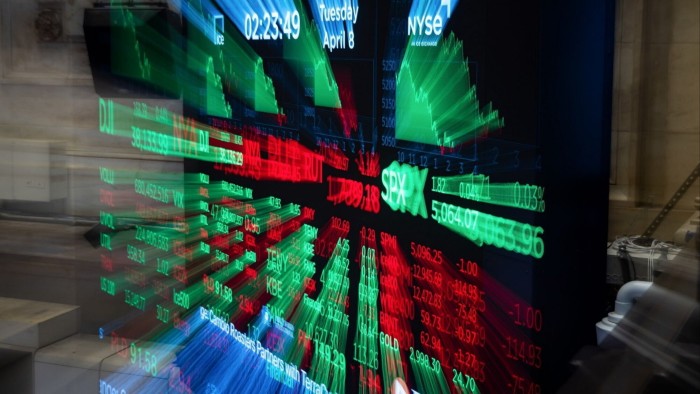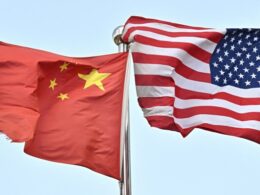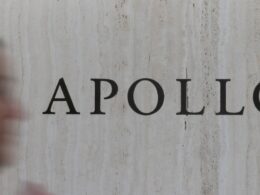Unlock the Editor’s Digest for free
Roula Khalaf, Editor of the FT, selects her favourite stories in this weekly newsletter.
A new cast of boutique banks is fuelling a fresh fervour for blank-cheque companies — one of Wall Street’s hottest and most controversial products during the pandemic-era bull market.
Special purpose acquisition vehicles, or Spacs, exploded in popularity during the Covid-19 crisis, with around 600 deals in the US raising a record $163bn in 2021 before the frenzy died down as global stocks tumbled the following year due to rising interest rates.
But the market has revved up again since Donald Trump won his second term as president, despite volatility sparked by his tariffs delaying several traditional initial public offerings. There have been 44 Spac offerings this year raising $9bn, compared with 57 raising $9.6bn during the whole of 2024, Dealogic data shows.
A Spac is a vehicle that offers private companies an alternative to IPOs; the blank cheque company lists on public markets and then later merges with a target.
Under former Securities and Exchange Commission chair Gary Gensler, the regulator aligned the rules for mergers of companies with listed Spacs with those for standard IPOs. Investors expect more lenient policy under the SEC’s new chair Paul Atkins, who was nominated by Trump.
Four years ago, Credit Suisse, Citibank, Deutsche Bank and Jefferies were among the busiest Spac advisers. But a cluster of lesser-known firms including Cohen & Company Capital Markets, D Boral Capital, Clear Street and Maxim Group have since come to dominate the sector.
“There’s been a reordering of the deck chairs since the Gensler era,” said Matthew Michel, founder and managing partner at InvestorLink Capital Markets.
“When the SEC targeted Spacs by creating an uncertain regulatory environment, the big banks moved to idle their Spac origination businesses,” Michel said. “This shift cleared the way for smaller players to fill the void.”
Since 2022, no firm has advised on more deals between Spacs and groups seeking to go public — a process known as a de-Spac — than Cohen & Company, which has worked on 54 deals. Cohen & Company is also tied in first place this year with Cantor Fitzgerald for Spac IPOs.
Cohen & Company’s head of Spac investment banking Brandon Sun previously worked on Spacs at Deutsche Bank until he and three colleagues were let go in 2022 after their names appeared on a bill at a strip club, though Sun said he did not attend the event. Cohen & Company quickly snapped him up.
“2025 was meant to be the year of the IPO,” Sun said. “Given the volatility resulting from Trump’s tariff policies, those hopes have been dashed and crushed. The opportunity for Spacs is pretty incredible.”
D Boral Capital ranks second on de-Spac transactions over the past three years. In 2022, the bank — then named EF Hutton — helped Trump’s Truth Social list via a merger with Digital World Acquisition Corp.
The median price performance on the 17 private companies that have gone public by merging with Spacs this year is a fall of 73 per cent, according to data provider ListingTrack. Many during the earlier boom also suffered steep falls.
While the Spac market’s main underwriters have changed, many of the same sponsors active during the pandemic are “coming back into the game”, ListingTrack’s Nick Gershenhorn said.
Former Citigroup executive Michael Klein was a prolific Spac sponsor in 2020 and 2021. His latest blank-cheque company Churchill Capital X filed to go public in late April. In recent months, serial sponsors in 2020 and 2021 including banking entrepreneur Betsy Cohen, Los Angeles billionaire Alec Gores and former California congressman and Trump Media & Technology Group chief executive Devin Nunes have also taken part in Spac deals, according to regulatory filings.
A Spac led by Brandon Lutnick, son of US commerce secretary Howard Lutnick and chair of Cantor Fitzgerald, raised $100mn last year and in April merged with Twenty One Capital to form a bitcoin acquisition vehicle in the image of Michael Saylor’s bitcoin-focused group Strategy. Its shares have tripled since announcing the crypto deal.
Spac market participants credit Cantor and a recent flurry of new vehicles sponsored by the brokerage for reopening the market. “This vintage of sponsors are people who know how to get deals done,” said Sun.
Investors say the dash for Spacs is unlikely to slow even as the traditional IPO market begins to thaw on hopes that the worst of Trump’s tariff threats have passed.
“All the usual suspects are back. And if they are not back yet they will be back soon,” said one large Spac investor who did not want to be named. “People don’t care that [Spacs] were disasters before because they want to back dealmakers and guys that do something.”
Additional reporting by Will Schmitt in New York
Source link









